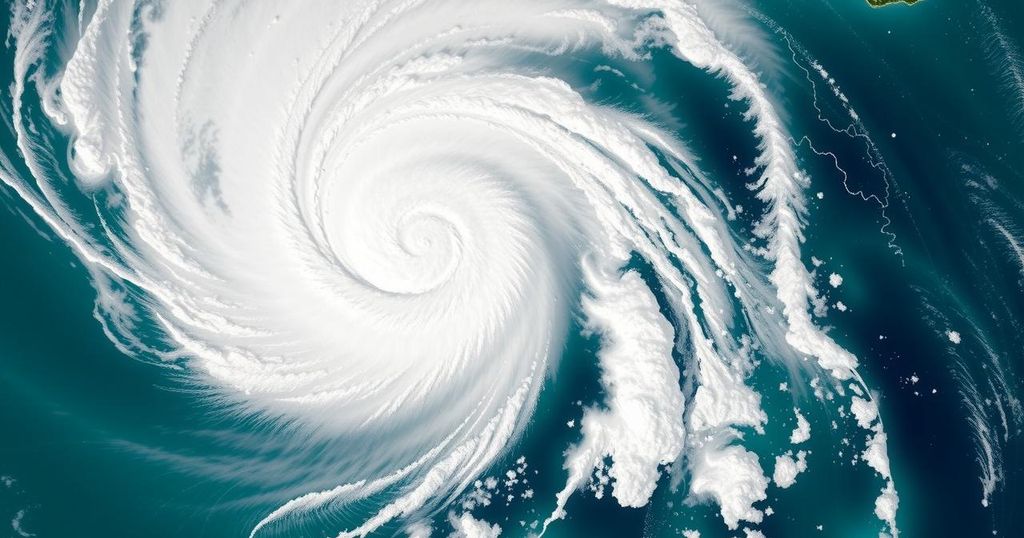Assessment of Tropical Cyclone Chido’s Damage and Impact Across Southern Africa

Tropical Cyclone Chido has impacted Mayotte and the Comoros and is expected to affect Mozambique and Malawi with heavy rains and strong winds, raising concerns for flooding and mudslides. While no significant damage has been reported in Madagascar, emergency preparedness measures are being implemented region-wide, with authorities focusing on monitoring and community safety.
As of December 14, Tropical Cyclone Chido has caused significant weather disturbances in Mayotte and the Comoros, with strong winds and heavy rains expected to provoke flooding and mudslides across Southern Africa. Approximately 2.5 million individuals inhabit the forecasted path of the cyclone, which includes 1.7 million people in Mozambique, 440,000 in Malawi, and around 370,000 in the Comoros. Madagascar experienced the cyclone’s proximity on December 13, albeit with no reported damages or casualties, prompting local authorities to assess the situation and issue cyclone warnings for coastal regions.
In Mayotte, severe wind conditions have been observed, surpassing those of previous cyclones, while some areas have already experienced flooding. The cyclone is anticipated to maintain its intensity and move south of the Comoros before making landfall in northern Mozambique on December 15. Current reports from Anjouan indicate minor infrastructure damage, including the destruction of homes and mosques. Search efforts for missing fishermen off Ngazidja continue.
Mozambique is on alert as Chido is expected to impact the Cabo Delgado Province with damaging winds and coastal hazards. Rainfall amounts may reach 200 mm, potentially leading to flash floods along with strong winds. The cyclone’s remnants are predicted to influence southern Malawi, Zimbabwe, and Zambia with heavy rainfall.
Regional and national agencies are actively implementing emergency preparation measures, including monitoring weather developments, escalating public awareness campaigns, and positioning emergency supplies. National meteorological services across the affected countries continue to issue alerts and recommendations to mitigate potential disaster impact. Overall, while immediate infrastructure damage reports are minimal in some regions, the full impact of Cyclone Chido remains to be assessed as preparedness efforts continue.
Tropical Cyclone Chido, which developed in the southeastern Indian Ocean, has intensified rapidly, causing concern for millions living in its projected path. It is categorized as an intense tropical cyclone, which is expected to bring exceptional wind and rainfall to parts of Southern Africa. The cyclone’s trajectory places key regions of Mozambique, Malawi, and the Comoros in danger of severe weather events, prompting extensive emergency responses by regional and national authorities. The ongoing assessments from local governments and disaster response agencies are crucial for understanding the cyclone’s impact and for ensuring community safety.
Tropical Cyclone Chido has generated significant weather disturbances across the southern Indian Ocean, prompting urgent response efforts in multiple countries. As the cyclone traverses the region, authorities continue to monitor its impact while preparing for potential fallout in terms of flooding and infrastructure damage. Continuous updates and community preparedness are essential in mitigating risks associated with Chido, and collaboration among humanitarian agencies remains pivotal in ensuring efficient response strategies.
Original Source: allafrica.com






